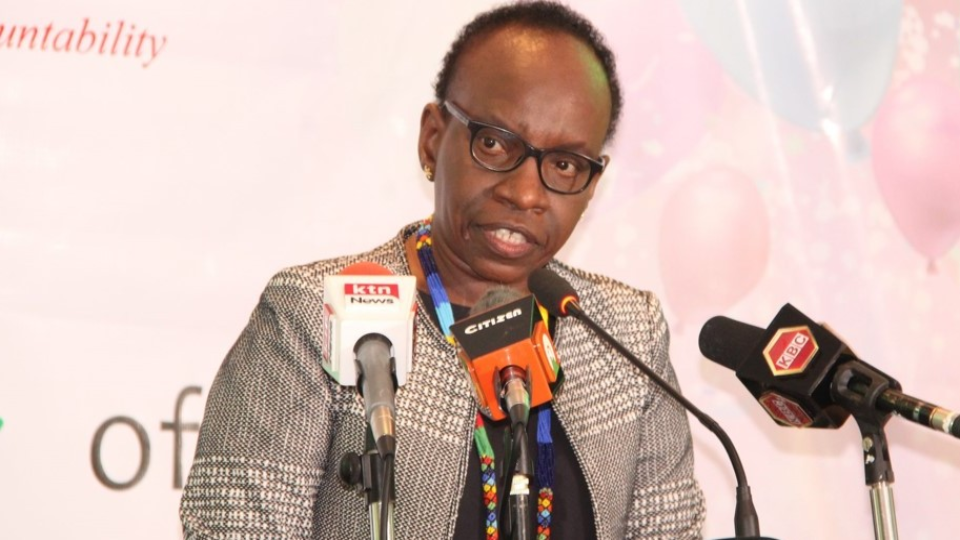Audit Report Uncovers Sh2.5 Billion in Unaccounted Donor-Funded Projects in Kenya
A recent audit conducted by Auditor General Nancy Gathungu has revealed significant financial irregularities in Kenya’s management of donor-funded projects, with approximately Sh2.5 billion in expenditures lacking proper documentation for the financial year ending June 2024. The report highlights a troubling pattern of weak internal controls and governance across multiple government entities, raising serious concerns about the transparency and legitimacy of public spending.
The audit scrutinized various Ministries, Departments, and Agencies (MDAs), identifying Sh783.9 million in unsupported expenditures under their direct control. Additionally, donor-funded projects accounted for Sh1.26 billion in undocumented spending, with the Bogoria Silali Geothermal Project emerging as the most significant case. This project alone recorded Sh980.9 million in unsupported expenditures, split between Sh535.6 million by National Oil of Kenya and Sh445.29 million by Galana Energies Ltd. These figures reflect payments for goods, services, or activities without requisite receipts, invoices, or approval records, casting doubt on their authenticity.
Other donor-funded initiatives flagged in the report include the Financing Locally Led Climate Action Programme, which reported Sh123 million in unsupported domestic travel and subsistence allowances. The Africa Centre of Excellence in Sustainable Use of Insects as Food and Feeds Project recorded Sh2.86 million in undocumented field activity expenses, while the Global Fund Tuberculosis Funding Model noted Sh2.81 million in unsupported training services. The Horn of Africa Groundwater for Resilience Project, managed by the Water Sector Trust Fund, was cited for Sh1.5 million in unverified fuel expenses. Additionally, the Technical Support Programme Project failed to provide documentation for Sh914.5 million in refunds to the European Union, further underscoring systemic issues in financial oversight.
Beyond donor-funded projects, the audit exposed significant lapses in MDA operations. The State Department for Economic Planning could not account for Sh195.2 million in training expenses, while the Social Protection unit reported Sh986 million in unsupported domestic travel and subsistence claims, alongside Sh41.28 million in unverified cash payments and Sh25.27 million in fuel and lubricant expenses. The Department of Irrigation failed to justify Sh9 million in fuel expenditures, and the Mining department could not provide documentation for Sh7.63 million related to goods usage. These findings point to a pervasive lack of accountability across critical government sectors.
The Auditor General’s report emphasized that the failure to provide required documentation violates Section 68(1) of the Public Finance Management Act, 2012, which mandates accounting officers to ensure public funds are used lawfully, efficiently, and transparently. The absence of proper records not only undermines the credibility of reported expenditures but also signals weak internal controls and governance structures. Gathungu urged immediate remedial action, including strengthened oversight mechanisms, to safeguard public and donor funds from further mismanagement.
This audit is part of a broader pattern of financial irregularities uncovered by Gathungu’s office. Other reports have highlighted issues such as the diversion of Sh2.3 billion meant for African Union subscriptions, unsupported spending of Sh30.9 million by the Kenyatta International Convention Centre on luxury hotel meetings, and Sh7 billion in losses due to delayed power transmission projects managed by KETRACO. These findings collectively paint a troubling picture of systemic inefficiencies and potential misuse of public resources across various government entities.
The revelations have sparked widespread concern among stakeholders, with calls for urgent reforms to enhance financial accountability and transparency. The lack of documentation for such substantial sums raises questions about the effectiveness of current oversight mechanisms and the potential for fraud or misappropriation. Analysts suggest that these issues could erode donor confidence, jeopardize future funding, and hinder Kenya’s development goals, particularly in critical sectors like energy, climate action, and public health.
The Auditor General has recommended comprehensive measures to address these shortcomings, including stricter adherence to procurement and financial regulations, enhanced internal audits, and robust monitoring systems. Government officials have yet to respond publicly to the report, but pressure is mounting for swift action to restore public trust and ensure donor funds are utilized effectively.
The audit findings underscore the urgent need for improved financial governance in Kenya’s public sector. With Sh2.5 billion in donor-funded projects unaccounted for, alongside other unsupported expenditures, the government faces a critical challenge in addressing systemic weaknesses. As Kenya continues to rely on donor support for key development initiatives, ensuring transparency and accountability will be essential to maintaining trust and achieving sustainable progress.


